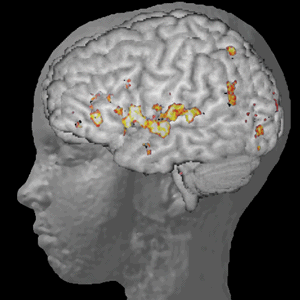New Project to Understand the Human Mind
April 2, 2013
A bold new research initiative to understand the inner workings of the human brain was announced today by President Barack Obama. The research initiative, called the Brain Research Through Advancing Innovative Neurotechnologies (BRAIN), aims to record and map all the connections between neurons (nerve cells) in the human brain and understand how they work together to form the mind. Researchers hope the project will lead to new ways to diagnose and treat brain diseases, including Alzheimer’s disease, autism, epilepsy, Parkinson disease, and schizophrenia.
In the brain, neurons communicate with one another through electrical and chemical signals. Unlike the brain, however, the mind is not a distinct physical object. A mind enables animals to react to, and make sense of, their surroundings. In human beings, the mind also involves internal thoughts and feelings. Discovering how the mind develops from the nervous system is considered so difficult that scientists have labeled it the “hard problem” of the mind. President Obama has designated the BRAIN project to tackle this problem as one of the “grand challenges for the 21st Century.”

Areas of the brain active in the processing of words are highlighted in a functional MRI of a human brain. (Center for the Study of Learning, Georgetown University)
A senior White House science advisor compared the BRAIN mission to the Human Genome Project–an international scientific program completed in 2003 that analyzed the chemical instructions that control heredity in human beings. Three government agencies, the National Institutes of Health (NIH), the Defense Advanced Research Projects Agency (DARPA), and the National Science Foundation (NSF) will work together with $100 million to spearhead the project. President Obama stated that investment and expertise from several private research foundations will also be involved in the project.
Modern medical technology, including positron emission tomography (PET) and functional magnetic resonance imaging (fMRI), can produce detailed images of a living human brain. However, scientists involved in the BRAIN project will need to develop new technologies to map and record the activity of individual neurons in the brain. Such technologies do not currently exist. Other researchers will examine the ethical implications of advancements that come from the BRAIN project. For example, as scientists learn how decisions are made in the brain, they may discover ways to predict or even influence certain behaviors in people.
Additional World Book articles:
- Consciousness
- Mental illness
- Unconscious
- What Is the Nature of Consciousness? (a special report)


